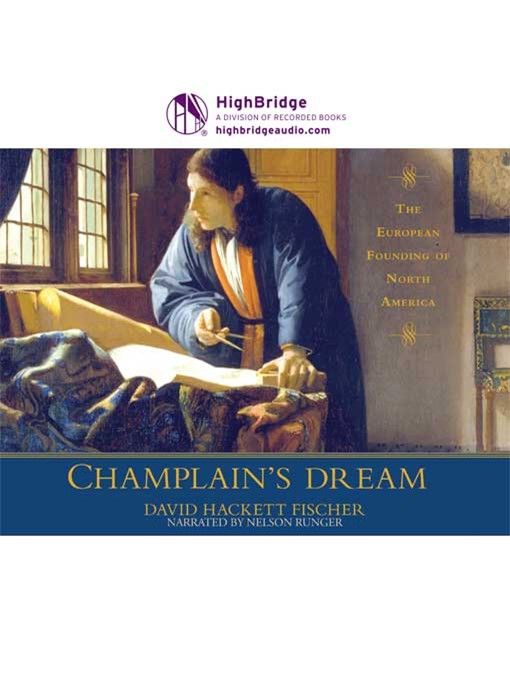
Champlain's Dream
کتاب های مرتبط
- اطلاعات
- نقد و بررسی
- دیدگاه کاربران
نقد و بررسی

Starred review from September 8, 2008
Fischer, Pulitzer Prize–winner for Washington's Crossing
, has produced the definitive biography of Samuel de Champlain (1567–1635): spy, explorer, courtier, soldier, sailor, ethnologist, mapmaker, and founder and governor of New France (today's Quebec), which he founded in 1608. This extraordinary and flawed individual was a man of war who dreamed of establishing a peaceful nation in the New World. Fischer once again displays a staggering and wide research, lightly worn, including no fewer than 16 fascinating appendixes covering everything from the “Indian Nations in Champlain's World, 1603–35” to Champlain's preferred firearm. The bibliography is equally impressive, and the same should be said of Fischer's literary skills and approach. He does not have “a thesis, or a theory, or an ideology,” but instead answers questions (“Who was this man? What did he do? Why should we care?”) to weave together his epic story. With 2008 the 400th anniversary of the foundation of New France, the time is ripe for this outstanding work. 16 pages of color photos; b&w photos, maps.

A dream of humanity and peace in a world of cruelty and violence inspired French explorer Samuel Champlain as he brokered alliances with Native Americans and built the settlements that grew into modern Canada. Edward Herrmann's reading of Fischer's biography is dramatic and compelling as the explorer faces trials such as harsh winters, conflict with the English, and an unhappy marriage. The biography looks not only at Champlain's efforts in the New World, but also at the religious war and personal observations of Spanish cruelty that shaped his utopian dreams. Herrmann's reading is graceful and exciting, but the true appeal of the book lies in its depiction of a life that is simply extraordinary. J.A.S. (c) AudioFile 2008, Portland, Maine

Fischer's long biography of Samuel de Champlain depicts an explorer and colonizer who tried to establish a regime of religious and interracial tolerance in Canada in the early 1600s. Nelson Runger's voice, though not especially melodious, is resonant, clear, and professionally crisp. But his seeming determination to add expression to every phrase leads him to overemphasize and exaggerate. That, combined with his frustrating pace, one or two beats slower than normal, is frustrating. The listener eventually adapts, but never completely. His awkward French pronunciation makes the many French names--so important for this book--hard to decipher. Runger is clearly a skilled professional, but his attributes do not shine in this production. W.M. (c) AudioFile 2010, Portland, Maine

























دیدگاه کاربران